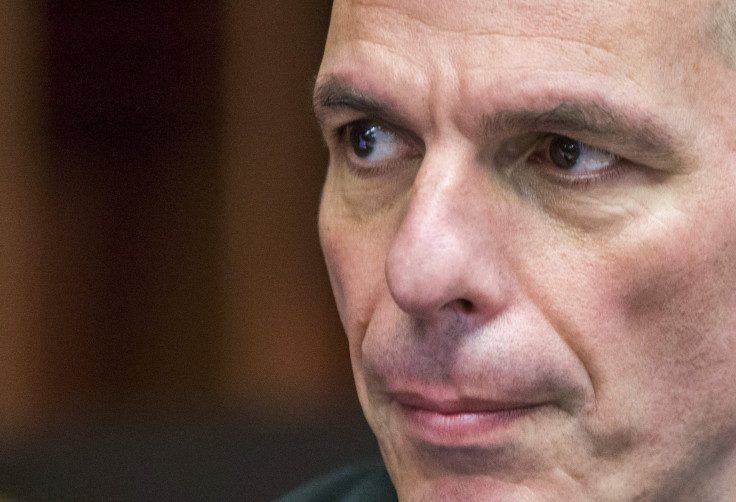Former Greek Finance Minister Yanis Varoufakis Sparks Mistrust As Greek Bailout Negotiations Continue

BRUSSELS -- Tensions between Greece and the three organizations collectively known as the "troika" grew after Yanis Varoufakis, the former Greek finance minister, said that Greek Prime Minister Alexis Tsipras had commissioned Varoufakis to draw up plans for a parallel banking system that could be used in the event of a Grexit.
The contingency plan challenges Prime Minister Tsipras’ repeated insistence that his intent is to keep Greece in the eurozone.
Unveiled plans by #Greece ex-FinMin Varoufakis to return to drachma during ongoing talks with us show how unpredictable he was as a partner
— Peter Kažimír (@KazimirPeter) July 27, 2015“Unveiled plans by #Greece ex-FinMin Varoufakis to return to drachma during ongoing talks with us show how unpredictable he was as a partner,” Slovakian Finance Minister Peter Kazimir said in a tweet on Monday. “We need to make sure that such two-faced 'games' will be avoided when debating [and] drafting the third bailout package.”
The European Commission, the executive arm of the European Union, dismissed the allegations. “I don't think that the Commission will engage with conspiracy plans,” said Mina Andreeva, spokeswoman for the Commission. “What matters for the Commission is not looking into the past, but preparing the future.”
But the Commission was not so dismissive of another damning allegation. On Monday, in a transcript of a phone call released by the Official Monetary and Financial Institutions Forum (OMFIF), a think tank located in London, the former Greek finance minister claimed that Greece’s general secretariat of public revenues is controlled fully and directly by the troika.
“It was not under the control of my ministry and of me as minister; it was controlled by Brussels,” he said in the conversation. “The general secretary was appointed effectively through a process that is troika controlled.”
Reactions in Brussels on Tuesday were hardly conciliatory.
“The allegations that the troika was controlling the General Secretariat of Public Revenues are false and unfounded,” said Mina Andreeva, a spokeswoman for the European Commission. “It is a quasi-independent entity responsible for tax administration and is formally a part of the Ministry of Finance.”
“Alleging that the troika is controlling the General Secretariat of Public Revenues is simply not true. We are only providing technical assistance.”
The allegations did little to help a bitter atmosphere in Athens, where the Greek parliament has passed two rounds of austerity reforms since Greece and its creditors came to an agreement towards a third bailout package on July 13.

The controversial phone call took place on July 16, 10 days after Mr. Varoufakis’ resignation from his position as finance minister; Varoufakis, Norman Lamont, British Chancellor of the Exchequer, and David Marsh, managing director of the OMFIF participated in the call. Members of the think tank’s network, including hedge-fund managers and long-term investors, were “passively listening” in on the call, according to a statement on the OMFIF’s website.
In the conversation, the former Greek finance minister also discussed his mandate to draft a parallel banking system and mentioned that German Finance Minister Wolfgang Schaeuble was “hell-bent on a Grexit.”
“Wolfgang Schaeuble has a plan. He believes that the eurozone is not sustainable as it is,” Mr. Varoufakis said in the phone call. “A Greek exit is going to equip him with sufficient bargaining power ... to impose upon the French that which Paris is resisting.”
“And what is that? It is a degree of transfer of budget-making powers from Paris to Brussels.”
Representatives from the troika are meeting in Athens this week to negotiate a memorandum of understanding for a third bailout package worth an estimated 86 billion euros. Although the Greek parliament’s passage of reform measures offered encouraging signs for Greek prospects of a bailout, Varoufakis’ vigilantism and transparency may bring the specter of mistrust back to the negotiating table.
© Copyright IBTimes 2025. All rights reserved.




















